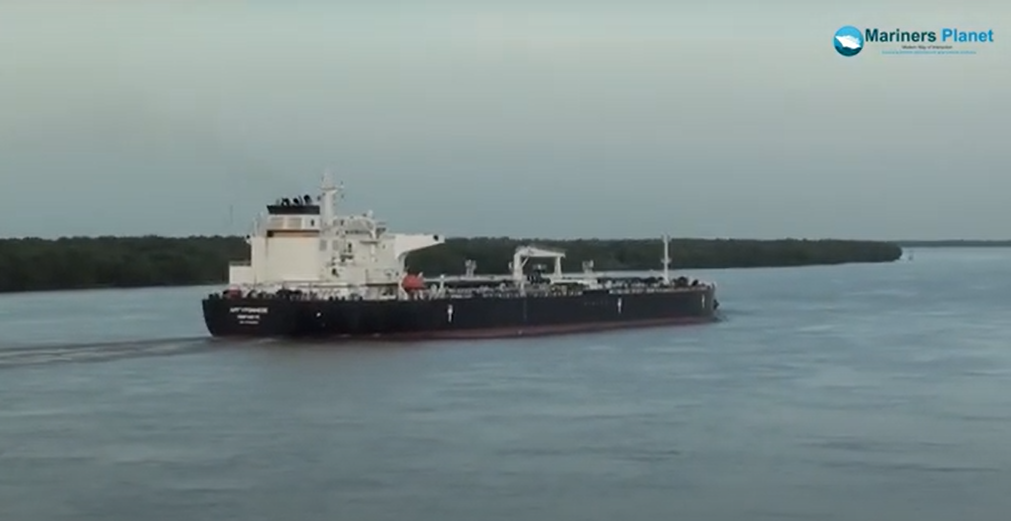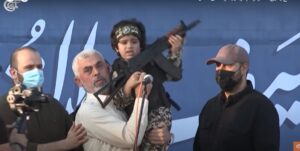The Iranian response to the attack of the Israeli Mossad on January 28 in the military compound in Isfahan was not late in coming, it was expected.
The Persian-language BBC reported on February 17 that an oil tanker belonging to the Zodiac shipping company, partially owned by Israeli billionaire Eyal Ofer, was attacked in the Arabian Sea by vessels and drones of Iran’s Revolutionary Guards.
According to the report, the attack on the Campo Square tanker, which sailed under the flag of Liberia, was a week ago using a Shahed-136 drone, the same type of drones that Iran supplied to Russia for the war in Ukraine.
The base of the Zodiac company is in Great Britain and Greece.
The Saudi website Ilaf reported on February 17 that in the same attack another UAE ship sailing near the Campo Square tanker was also hit.
Security officials in Israel estimate that the Iranian attack is a direct reaction of Iran to the attack attributed to the Israeli Mossad on the military complex in Isfahan, which is engaged in the production and development of hypersonic missiles and advanced drones, the Iranian news agency Tasnim confirmed the attack.
The Iranian military response was expected and did not surprise Israel, the Iranians chose to respond on the naval front because they estimate that they are stronger than Israel in the naval field and that Israel does not have a sufficient military answer to deal with them on this front.
A secret naval war has been going on between Israel and Iran in recent years, during which several Iranian and Israeli ships have already been damaged.
The tanker Campo Square is the third Zodiac ship to be attacked by Iranian drones in recent years.
The Iranian attacks on Israeli ships in the Gulf of Oman in recent years were in response to Israeli attacks on Iran’s oil shipments to the Assad regime and arms shipments from Iran to Hezbollah.
Iran changed its policy and moved to a policy of an eye for an eye and it carries out retaliatory actions for Israeli attacks on Iranian targets by attacking Israeli ships in the middle of the sea.
The Israeli security establishment is taking seriously the return of Iran to attack Israeli ships in the middle of the sea and the situation will be reassessed, this is a complex situation and Israel should handle it very carefully.
Israel has about 300 ships sailing around the world and are exposed to Iran’s damage to them or its various affiliates, damage to them can be a serious damage to the Israeli economy, about 90 percent of the goods that come to Israel from abroad come by sea, about 12 percent of the goods come through Bab Almandab Straits and the Red Sea.
Iran has the military capability to threaten the safety of Israeli ships at sea, but to the same extent Iranian ships are exposed to Israel’s intelligence and military capabilities, especially in the area of the Bab al Mandab Straits, the Red Sea and the Mediterranean Sea and less so in the Persian Gulf area, there is a kind of balance of fear between the two sides who understand the danger of mutual escalation and therefore they try to avoid it.
Israel is very concerned about Iran’s development and production capacity with regard to drones and missiles, Defense Minister Yoav Galant revealed during the security conference in Munich on February 17 that despite the embargo imposed on Iran, it is holding talks for the sale of lethal weapons to 50 countries and noted that Venezuela and Belarus have already bought drones from it for a range of 1000 km.
As you may remember, Iran has also gotten closer to Russia and is regularly supplying it with drones and missiles for the war in Ukraine.
The Israeli position is that the international community must join forces and take urgent and quick steps to stop the arms deals that Iran is leading and to create an effective deterrent and punishment mechanism that will deal with Iran.



